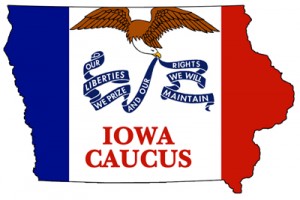Plotting Pathways to Primary Success
 Many non-political people question the primacy of Iowa and New Hampshire in the process of picking our Presidential candidates. As the Iowa Caucuses less than 90 days away, it is worth considering the importance of the early contest and assessing paths to primary victory.
Many non-political people question the primacy of Iowa and New Hampshire in the process of picking our Presidential candidates. As the Iowa Caucuses less than 90 days away, it is worth considering the importance of the early contest and assessing paths to primary victory.
Iowa and New Hampshire are important because they test a can test a candidate’s endurance, organization and strategy. Because voters in the early primary states take their participation seriously, they expect to have lots of one-on-one encounters with hopefuls (retail politics). Former Senator Rick Santorum (R-PA) won Iowa in 2012 on a shoestring budget because of a grassroots effort to have town halls in all 99 counties.
Since the Iowa Caucuses began in 1976, they have not been a great predictor of eventual GOP nominees. While Iowa many not pick a winner, but it typically does thin the field out. Being in the top three tends to punch a ticket for later contests.
Favorite son candidates sometimes can do well in Iowa just because of their connection or proximity to the Hawkeye State. Such was the plan of Rep. Dick Gephardt’s (D-MO 3rd) in 1988, Rep. Michele Bachmann (R-MN 6th) or ex-Governor Tim Pawlenty (R-MN) in 2012 but this pathway to success proved futile. There was some speculation that Governor Scott Walker (R-WI) would have greatly aided by his native Iowan ties and being a next door neighbor, but that was not enough for him in the 2016 election cycle.
Iowa voters expect to be courted by aspiring candidates. But how “retail” politics is conducted matters to assuage “Iowa Stubborn”.
